Are you looking to streamline your IT support services with a solid agreement? A well-crafted IT support services agreement not only defines the scope of services but also sets clear expectations between your business and the service provider. It ensures that technical issues are resolved efficiently while fostering a reliable partnership. Ready to dive into the essential components and templates for your IT support services agreement? Read on for expert insights!

Scope of Services
The scope of services for IT support encompasses a wide range of assistance for both hardware and software systems, including desktop computers, servers, networking equipment, and peripherals. Services include troubleshooting, installation, maintenance, and upgrades of operating systems such as Windows and macOS, along with popular software applications like Microsoft Office and Adobe Creative Suite. The agreement may specifically outline response times for urgent issues, typically within two hours during business hours, and 24/7 support for critical systems. Additionally, services will cover data backup solutions using cloud storage providers, ensuring data recovery procedures are in place. Security measures, including firewall management and antivirus software deployment, will also be part of the scope, safeguarding against threats like malware and phishing attacks. Regular system audits, typically quarterly, will assess compliance with industry standards such as GDPR and HIPAA to maintain data integrity and privacy.
Service Level Agreements (SLAs)
Service Level Agreements (SLAs) are essential components in defining the expected performance and reliability standards of IT support services for organizations. These agreements often outline specific performance metrics, such as response times (measured in hours), resolution times (defined usually in days), and availability targets (often set at 99.9% uptime). Different levels of support may exist, including Tier 1 (initial troubleshooting) and Tier 2 (advanced technical resolution). Additionally, SLAs establish penalties or credits applicable when service levels are not met, thereby ensuring accountability from service providers. The documentation may also include details about incident reporting protocols, escalation procedures, and monitoring methods, such as ticketing systems like JIRA or ServiceNow, ensuring seamless communication between clients and IT support teams. Compliance with these agreements is crucial for maintaining service quality and alignment with business objectives in situations like network outages, software failures, or hardware malfunctions.
Payment Terms
The payment terms for IT support services encompass several critical elements that ensure clarity and accountability between service providers and clients. Monthly service fees amount to $500 (or equivalent in local currency) due on the first of each month, which provides steady financial planning for both parties. Payment methods accepted include bank transfers, credit cards, and PayPal, facilitating smooth transactions. Late payments incur a fee of 5% of the outstanding amount for each month overdue, emphasizing timely payments' importance. Annual contracts can enjoy a discount of 10% when paid in full upfront, incentivizing long-term commitments. Detailed invoices are provided quarterly, documenting services rendered and any additional charges incurred, maintaining transparency throughout the partnership.
Confidentiality and Data Protection
IT support services agreements often emphasize the importance of confidentiality and data protection to safeguard sensitive information. This agreement outlines the responsibilities of the service provider, ensuring compliance with relevant regulations such as the General Data Protection Regulation (GDPR) established in the European Union. Key terms include the handling of personal data, defined as any information related to identified or identifiable individuals, including names, email addresses, and financial details. The service provider must implement robust security measures, including encryption protocols and access controls, to prevent unauthorized access to data. Additionally, both parties agree to conduct regular audits to assess compliance with data protection policies, safeguarding business continuity and maintaining trust in the services rendered.
Termination Clause
Termination clauses in IT support services agreements outline the conditions under which either party can end the agreement. Examples include stipulations such as providing written notice (typically 30 days in advance) to the other party. Additional considerations are the potential penalties for early termination or conditions based on failure to meet service level agreements (SLAs), which define performance metrics. Also significant are the obligations upon termination, such as returning proprietary information or settling any outstanding payments. Understanding these conditions ensures clarity in the relationship between service providers and clients, preventing disputes.

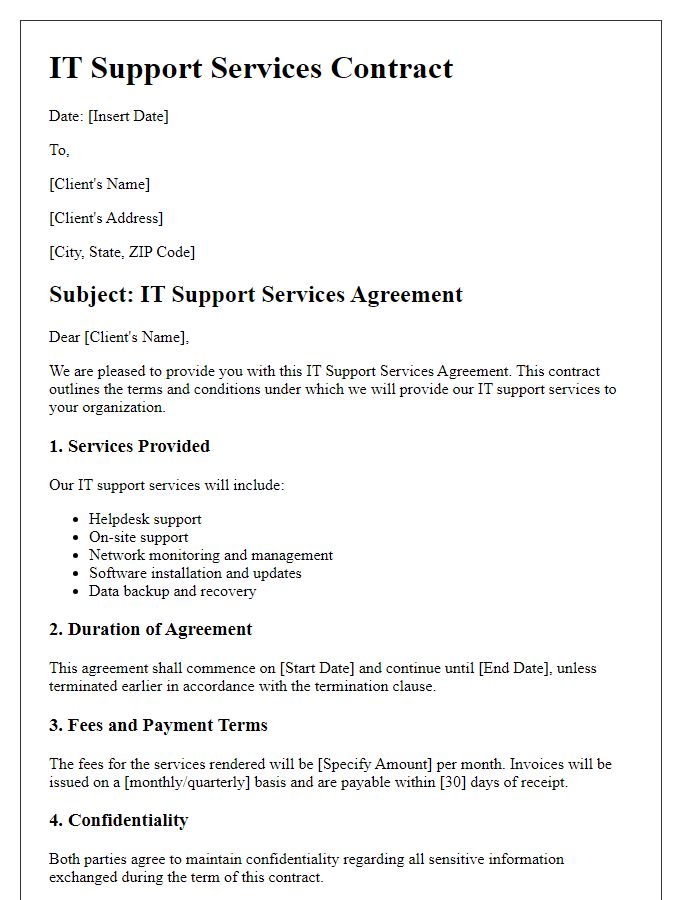
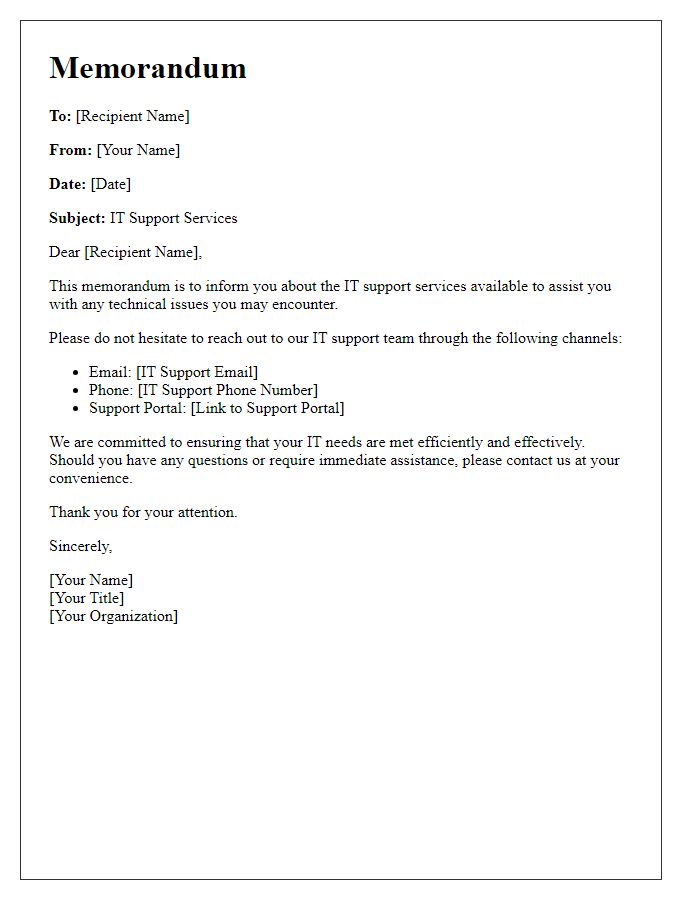
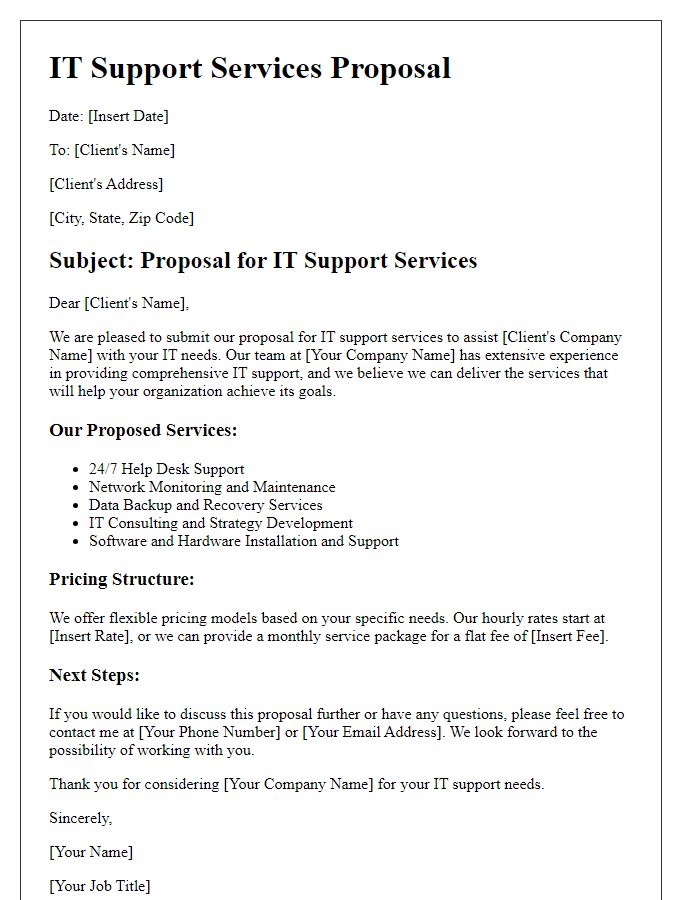
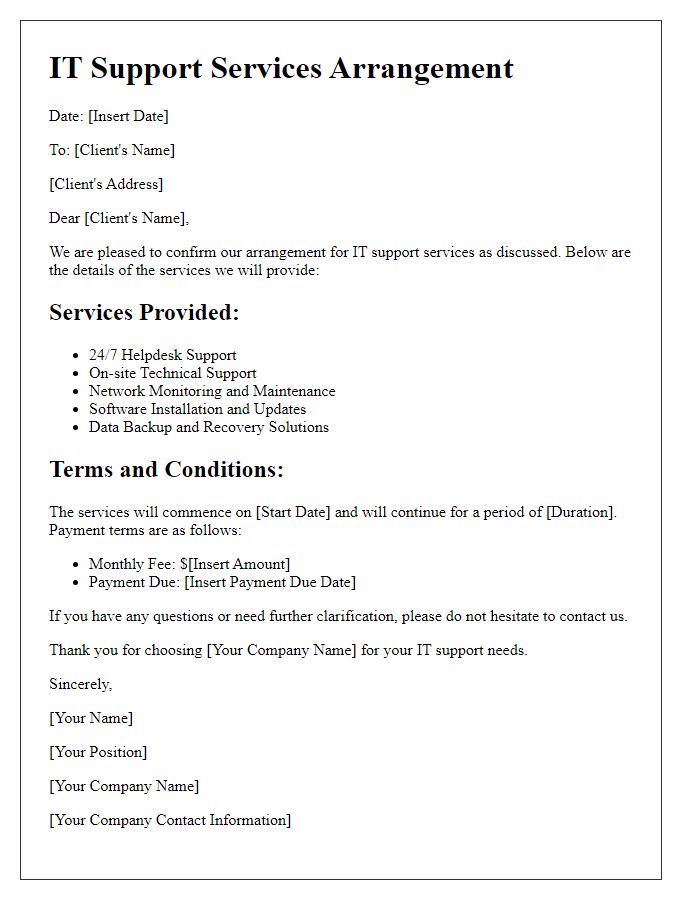
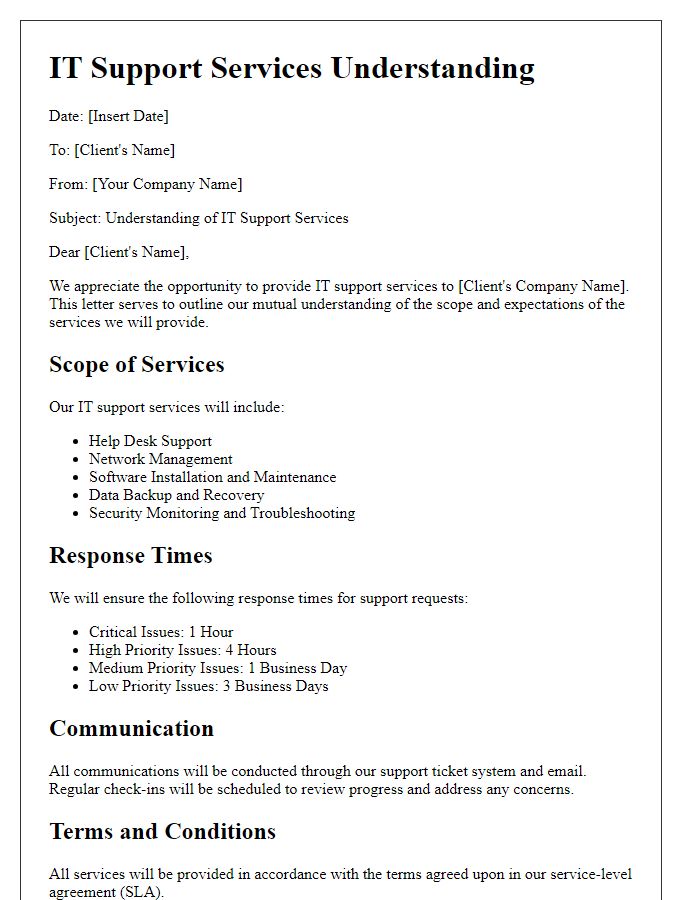
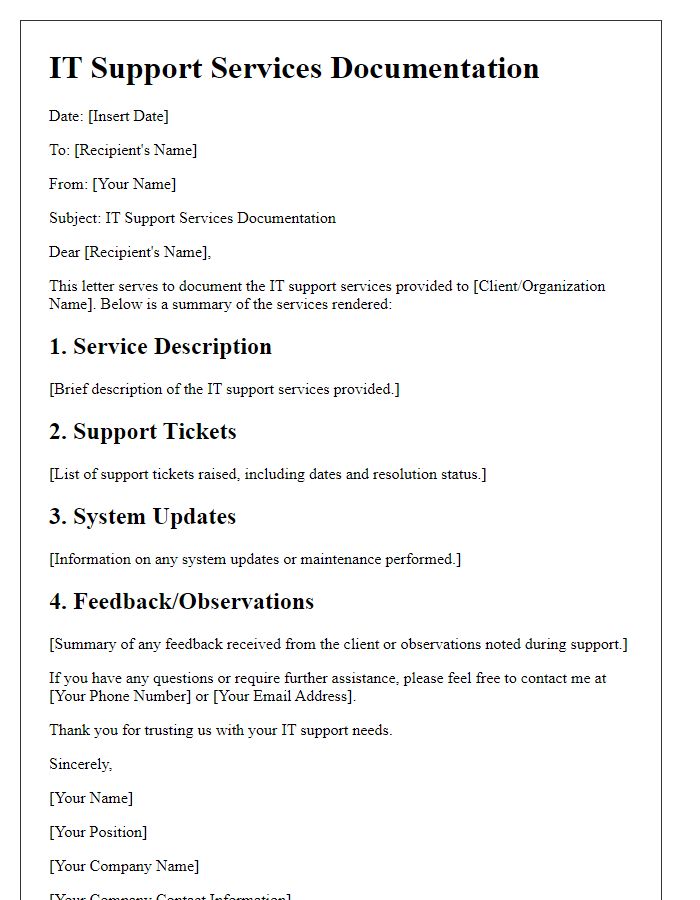
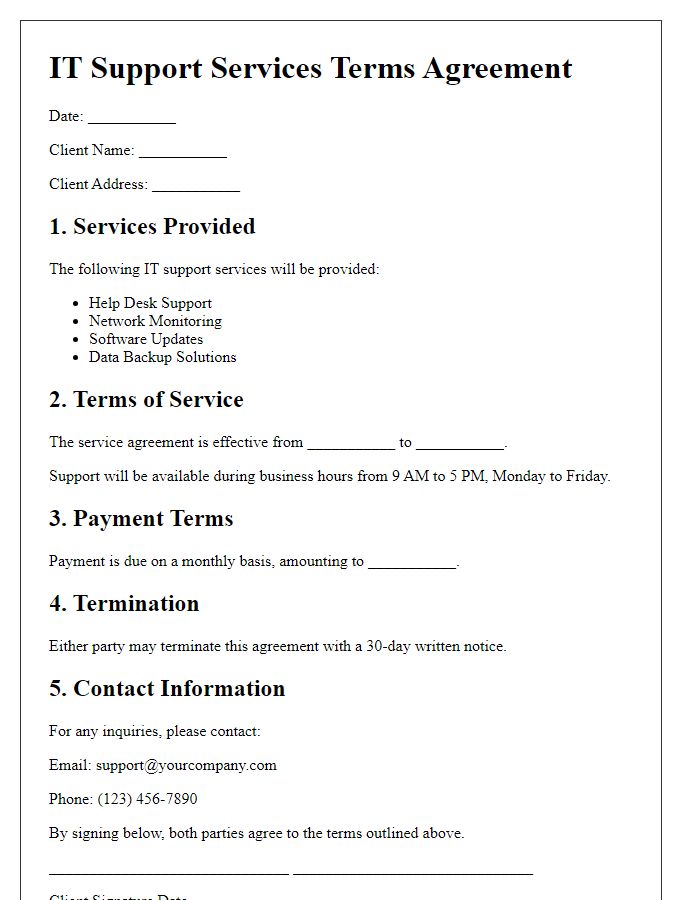

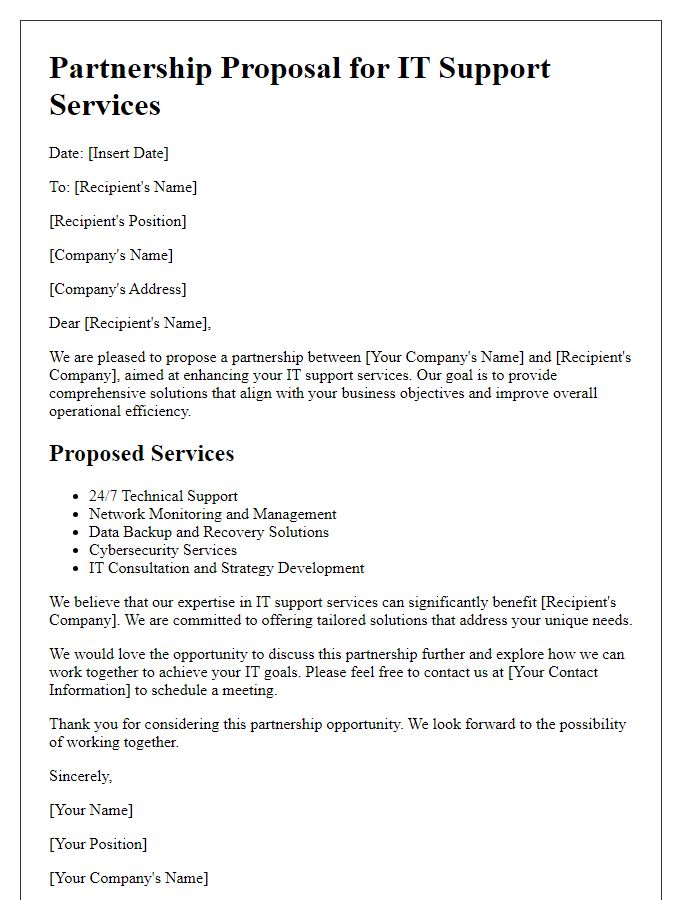
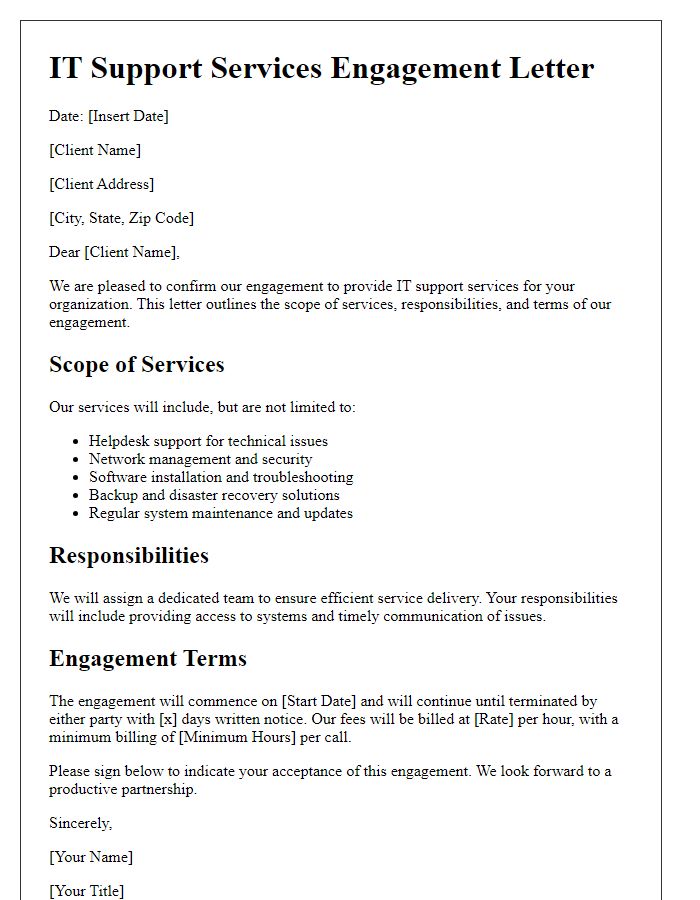


Comments